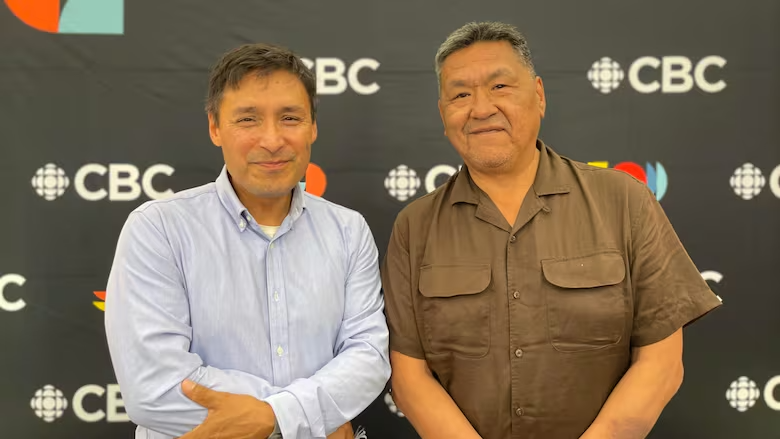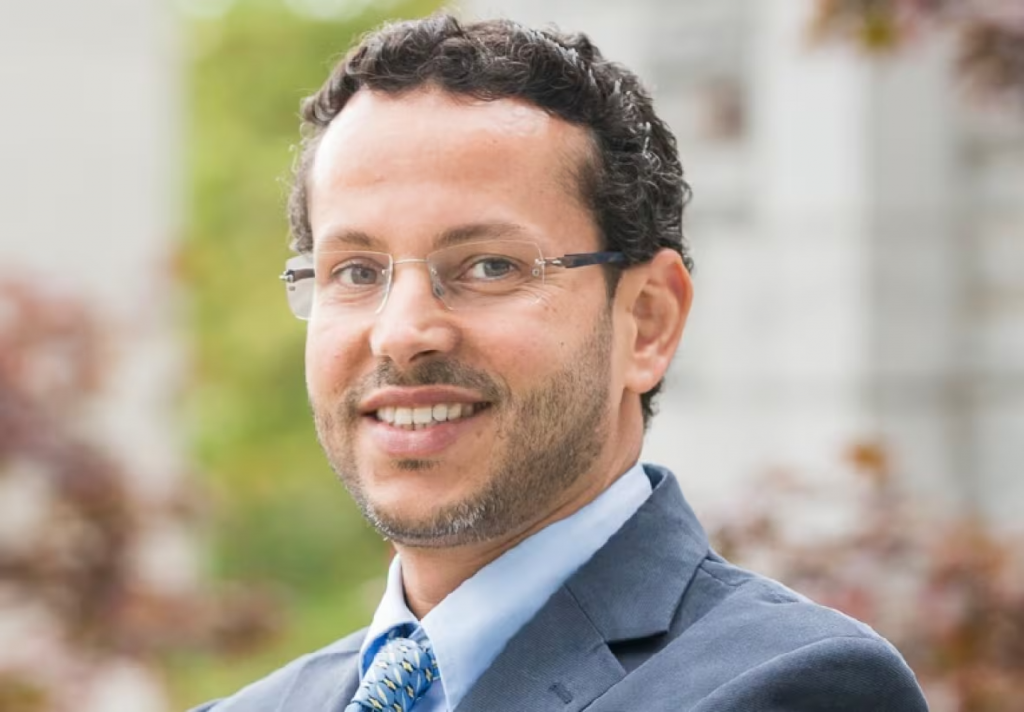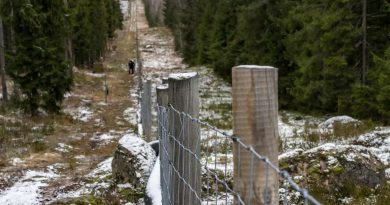Inuit innovators turn to AI to revitalize Inuktitut

Iqaluit-based company hopes to make Inuktitut more accessible, but urges caution around data sovereignty
The creators behind a new Inuktitut language app — powered by artificial intelligence (AI) — are on a mission to make learning the language more accessible.
Iqaluit-based AingA.I. Indigenous Languages Labs has been collecting Inuktitut text and thousands of hours of audio from language experts in the South Baffin dialect, which they’ll use to feed their interpretation and translation app.
The company’s founder and CEO Kirt Ejesiak says he doesn’t really see much Inuit representation in the AI field, and he wants to create something that’ll benefit Inuit.
“The future of AI in Inuktut will be for Inuit, made by Inuit, for the benefit of all Inuit. It’s not going to be for the benefit of Silicon Valley or other billion-dollar companies,” he said.
AingA.I. Indigenous Languages Labs has released a few sample videos of the interpretations from its trials so far. Ejesiak’s plan is to roll out the technology within the next six months, and have it act as a plug-in to existing apps or websites like YouTube. Eventually, he would like to incorporate all the different Inuktut dialects into the app.

He says the app isn’t intended to replace human interpreters and knowledge, but rather to serve as an additional tool for people to learn more Inuktitut at their own pace.
He hopes other Indigenous companies will take inspiration from their invention – and potentially partner with them to support other language revitalization efforts.
“We want to control our destiny. We want to create our own products and services. If we could do it, they could do it too.”
Data sovereignty
But with power comes great responsibility – and risks. With AI, Ejesiak worries about data sovereignty and who gets to own that information and those systems.
“What I would request [is] that policymakers and governments invest and protect intellectual property that belong to Indigenous people… and make sure that you have policies that support small Inuit companies and Inuit innovation,” he said.
There are several Inuktitut technologies being spearheaded by big tech companies. In October, Inuktut became the first Indigenous language spoken in Canada to be incorporated into Google Translate. The Government of Nunavut and Microsoft Canada also have a longstanding partnership to provide Inuktitut text-to-speech and translations on Microsoft Translator.

Muhammad Abdul-Mageed, a language and machine learning expert at the University of British Columbia, shares Ejesiak’s concerns about the ownership of data. He says there must be sufficient education and training around the technologies, and it should be led by members of the communities it’s intended to serve.
“Bear in mind that these AI systems are not value-neutral. They can be biased. They can be dangerous. They can accelerate issues related to privacy,” he said.
“It’s not sufficient if the consent is happening without being fully informed … we have to ask, in what ways are they going to be used now and possibly in the future? Which systems will this data go into? What would these systems look like,” he said.
Creating accessible technology
For more than a decade, the National Research Council of Canada has partnered with Indigenous organizations to create technologies targeted at revitalizing languages.
Patrick Littell, the council’s digital technologies team leader, says that work has included digitizing transcripts from the Nunavut Legislative Assembly. But for the most part, they’ve been focusing on educational tools in schools.
“We’ve worked on everything from machine translation systems to text-to-speech voices, from online verb conjugators for advanced students all the way to talking interactive storybooks for beginner readers,” he said.
He says Indigenous data sovereignty is a priority that guides their work, and they ensure that Indigenous organizations they partner with get to retain the copyright to their information, data, and the systems created.
“What we’re really looking to do is develop repeatable recipes for language technologies that an Indigenous organization, like a school, could make with resources realistically available to them … for Indigenous communities to develop technologies by themselves,” he said.
Every right to be skeptical
Evan Laye, an Indigenous engagement advisor with the council, says he hears the skepticism around AI – and the perils it poses. But as he reflects on his own experience being Red River Métis and trying to learn more of his Michif language, he says he sees great potential in such technologies.
“I frequently talk with my cousins and family relatives about learning Michif and utilizing it in our day-to-day lives more … and we’ve been able to do that because of the innovations in language learning,” he said.

Abdul-Mageed worries that some communities could be left behind as the technology becomes more pervasive.
“If I develop for a community but not for another, I’m depriving certain sectors of society of the benefits, educational benefits, health benefits and in other fields,” he said.
He also acknowledges the damage technology has wreaked in some communities. Ultimately, he says it’s up to communities themselves to determine whether the benefits outweigh the risks for them.
“I would very respectfully say that you’re right to be concerned and you’re right in being skeptical, because there are historical practices around creation of the technology and use of the technologies that have been harmful,” he said.
“If a particular community decides against it, then I think we should respect that.”
Related stories from around the North:
Canada: Heritage centres, language authority among initiatives to fortify Inuktitut in Nunavik, Eye on the Arctic
Finland: Everyone encouraged to boost Sami language visibility in Finland, Norway and Sweden this week, Eye on the Arctic
Norway: Indigenous and minority language names for Norway now have official status, The Independent Barents Observer
Russia: German project to house everything published in Siberian and Arctic languages to seek new funding, Eye on the Arctic
Sweden: A historic Swedish church embraces inclusion with minority languages, The Associated Press
United States: Inuit leaders applaud UN move to designate International Decade of Indigenous Languages, Eye on the Arctic



